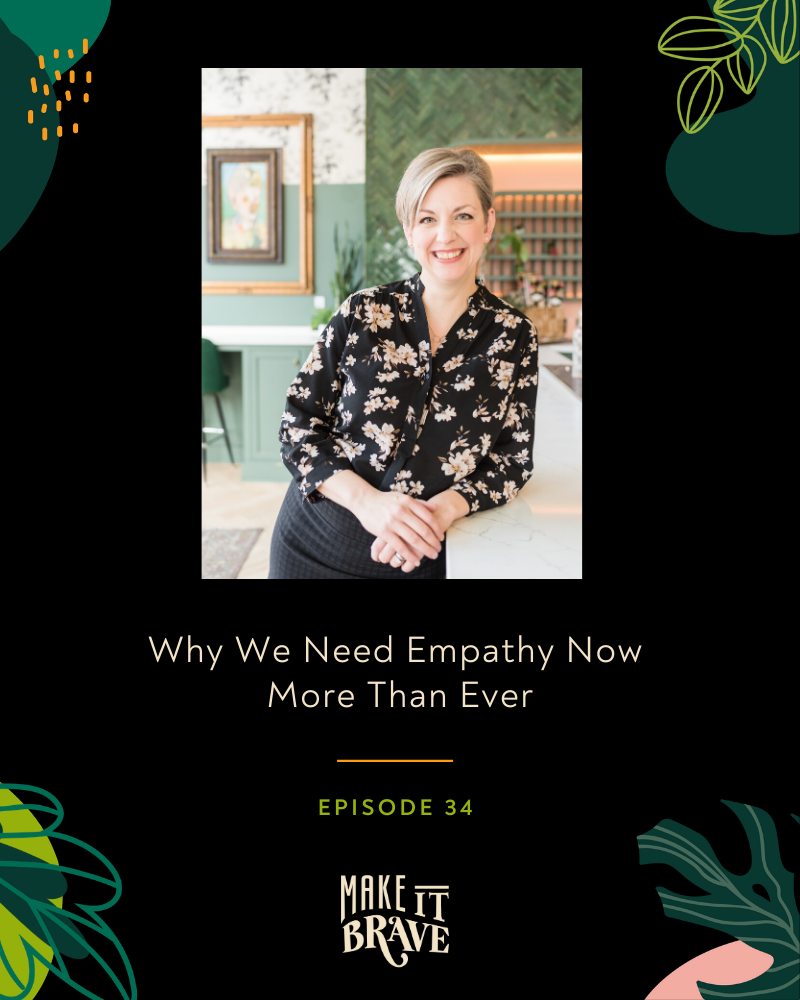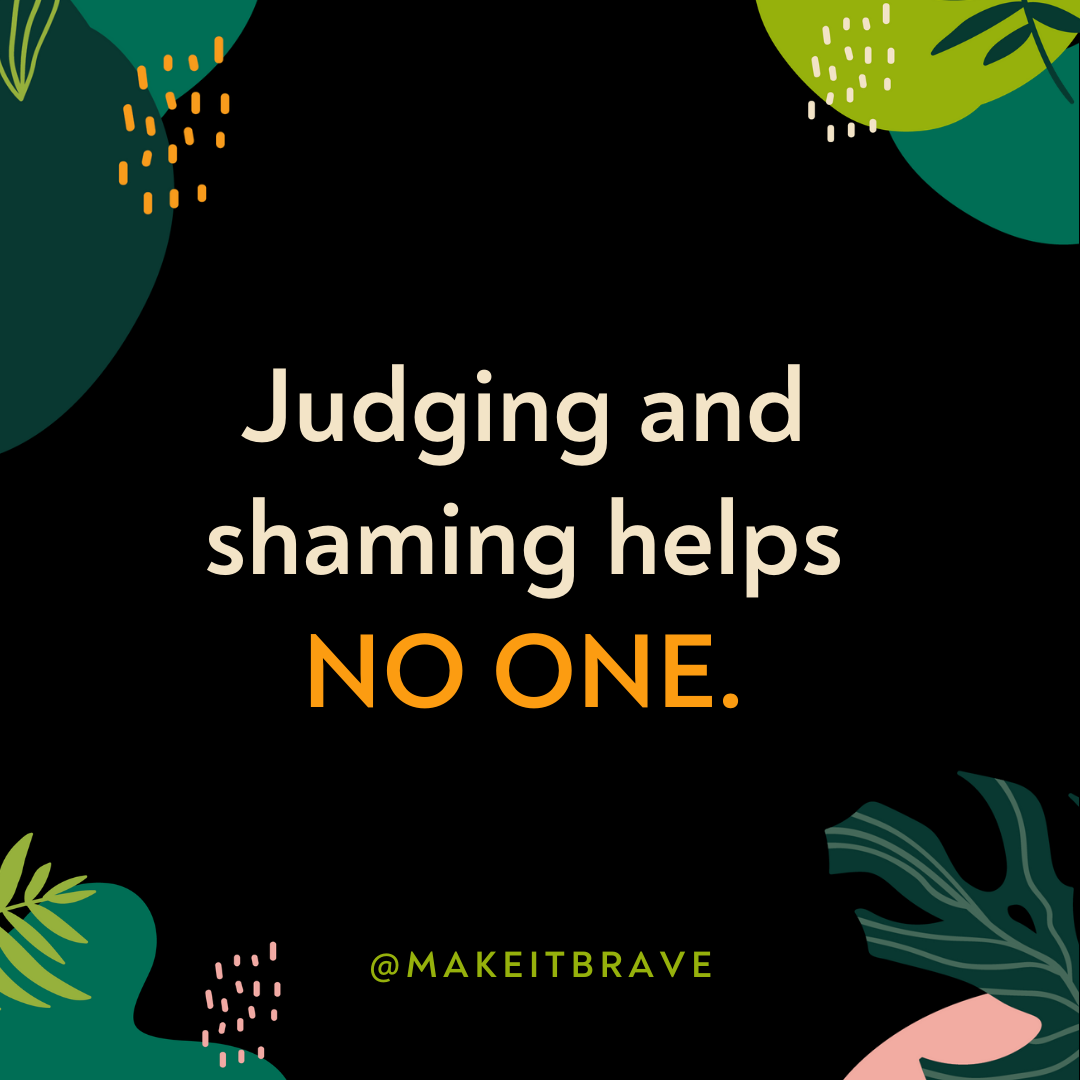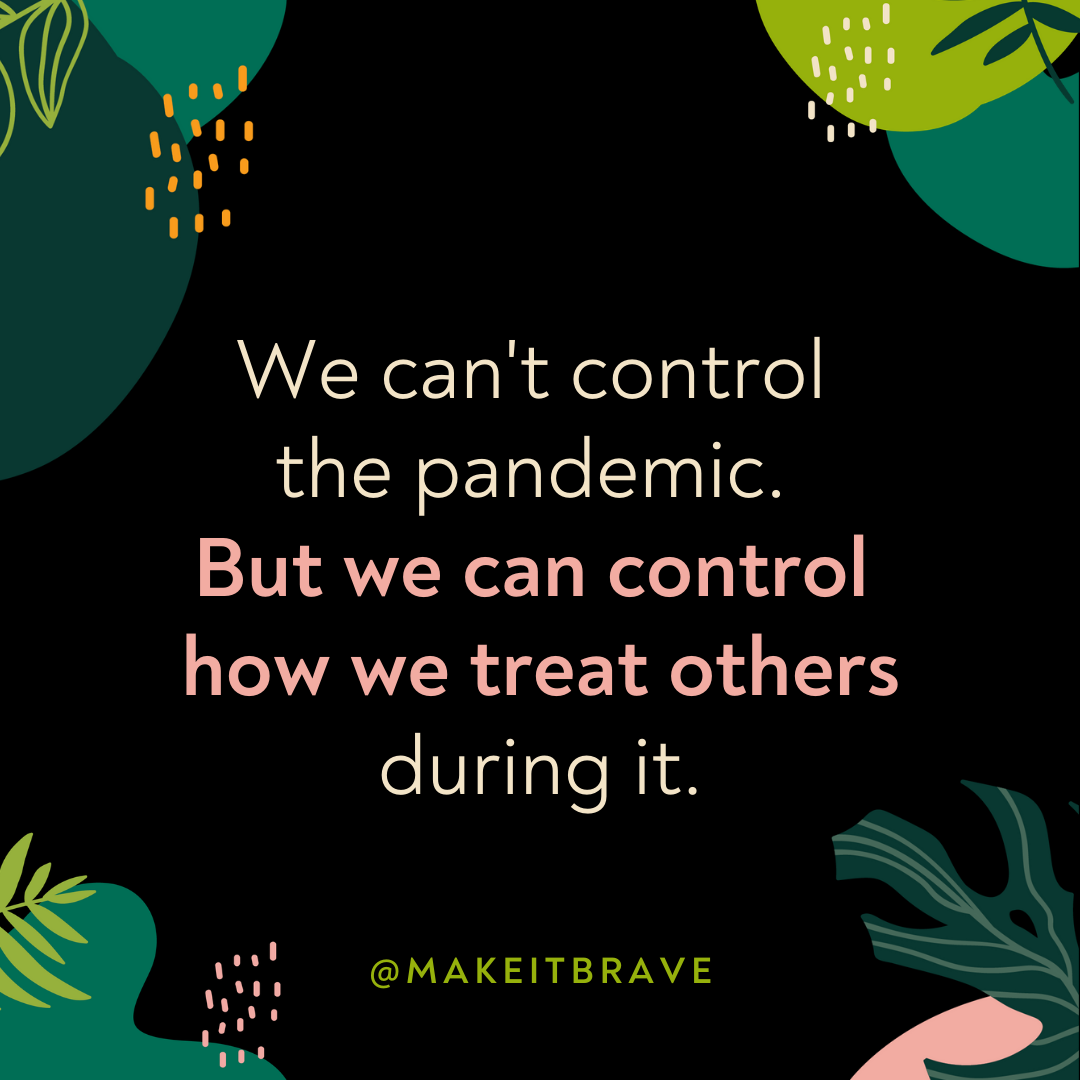Why We Need Empathy More Now Than Ever

I used to think I understood what it meant to be empathetic. That is, until my husband and I simultaneously battled cancer, infertility and IVF.
Through that experience, we learned a lot about the difference between sympathy and empathy.
You see, for the longest time, we hid our struggles from the world around us because we didn’t want people’s pity.
And then when we finally did open up about what we were going through, we didn’t always receive the best response. While some people were truly empathetic, most didn’t know how to handle our news.
Some brushed it aside or quickly changed the subject. Others suddenly became medical experts and were giving us advice on how to improve our chances of getting pregnant.
Still others became so upset that we were comforting THEM. While plenty more tried to look on the bright side and tell us that “everything happens for a reason.”
There’s a reason I love the Emily McDowell card that says, “Please let me be the first to punch the next person who tells you ‘everything happens for a reason.’” That’s not something that I wanted to hear when battling all this tough stuff. If you’ve ever heard this phrase when you’re going through something challenging, I’m sure you can relate.
It’s because of non-empathetic responses like the ones I just mentioned that people are afraid to be vulnerable. It’s scary to open up about your feelings. And our worst fears are realized when people don’t know how to hold space for what you are sharing.
The Difference Between Sympathy and Empathy
Before going through cancer and IVF, I used to think that you had to go through the same thing as someone else in order to be truly empathetic. But that’s not true.
Empathy requires having a good imagination. To be empathetic, you need to imagine what it’s like to be in another person’s shoes. It means trying to understand how another person is feeling.
In other words, empathy is feeling WITH someone.
And sympathy is feeling sorry FOR someone.
The key difference between the two is that empathy means you are trying to share the feelings of the other person. That means trying to understand their fear, frustration, pain or grief.
Yes, it can be challenging and even painful to do. But it’s so very important because empathy is what creates connection. Empathy is what helps people feel understood.
What Empathy Looks Like
Although people didn’t always know how to feel or understand our news when things were hard, we also had plenty of beautiful examples of people who sat in our pain alongside us. They didn’t try to fix our challenges, brush them aside or try to paint a silver lining over it.
Instead, they listened and held space for our sadness and grief. They acknowledged how we were feeling and it made us feel so seen and understood. It was so valuable and needed.
Because when you’re going through something really hard, sometimes, you just really want someone to recognize that what you’re going through is difficult. You want to know that your feelings are valid.
It’s no wonder that the people who did this well during our times of struggle are now some of our dearest friends.
Why Empathy Matters Right Now
I share all of this because I think we need empathy more now than ever.
You see, most of the time, we don’t really know what people are going through.While we all carry our own stories of struggle and hardship, we are now collectively going through something that is difficult.
We all are facing the SAME challenging situation in COVID-19.
But while we are all facing the same difficulty, each of us are experiencing it in a different way. I recently read this great analogy that characterizes our current situation well––we are all in the same storm, but we’re not in the same boat.
Experiencing the Same Challenge in Starkly Different Ways
As I’ve talked to friends in recent weeks, I’ve definitely seen that play out in the stark contrasts of struggles people are facing.
I have single friends who are experiencing extreme loneliness and isolation. I recently saw one woman confess on Facebook how she hasn’t gotten a hug in weeks and just longs to be touched by someone again. You could just feel how heartbroken she is that she’s going through this very difficult situation without the reassurance that comes from an embrace.
There are older adults, empty nesters and grandparents who long to see their kids and grandchildren. There are elderly shut-ins and people in nursing homes who can’t have visitors for fear of contracting the virus.
There are lots of weary parents who are trying to work from home while also caring for their children. And in many more cases, these same parents are also trying to teach their children because they are home from school. They are bone tired and worn out They are trying to make a living, but they are having trouble making it through day-to-day life because it’s all just too much to handle.
On top of that, I have single parent friends who are managing all of these same things––work, childcare, schooling––all without the help of a spouse.
Countless celebrations and milestones are being canceled, postponed or missed.
Parents of newborns are missing out getting to introduce their child to family members and friends.
Students and their parents are being robbed of their graduation ceremonies.
Couples are postponing weddings or holding them in isolation.
There are people who have lost jobs who long to go back to work because they are trying to make ends meet. There are others who are being forced to go to work and risk getting sick in the process.
There are frontline workers who are isolating themselves so they don’t get their families sick.
I could go on and on. There are so many difficult situations right now. Each of us have our own story and our own challenges amidst this pandemic.
No One Has a Roadmap for a Pandemic
None of them are necessarily better or worse. They are all just different. And we’re all doing the best we can to navigate this challenging time.
None of us have a roadmap for how to do this well.
However, what we can do is give each other grace and empathy. We can give each other the benefit of the doubt.
Instead, what tends to happen is we downplay our struggles because it’s not as bad as someone else. Or, we judge and shame others who are not following the rules.
The Shame Game is a Hurtful One
 Pandemic shaming has become an entire sport of its own as people publicly call out those for not social distancing or not wearing masks.
Pandemic shaming has become an entire sport of its own as people publicly call out those for not social distancing or not wearing masks.
There are online gurus who are shaming people for being lazy if they are not using this time to learn new skills or build new businesses.
There are bosses who are expecting the same level of output from their employees, even though they are working from home while caring for their children.
Apparently, even Zoom shaming has become a thing because people are using virtual backgrounds to avoid showing their house during meetings.
Here’s the thing, judging is easy. It makes us feel better about ourselves and our situation (or so we think). Instead, it just forces us down into an unhelpful pool of negativity. We might think that we are helping, but we’re just really dragging ourselves and others farther down into the muck and mire.
And at the end of the day, judging and shaming helps NO ONE.
But, what if, instead of judging others around us, we gave each other the benefit of the doubt? What if we realized that this whole pandemic thing is hard and we’re all trying our best?
What if we recognized that everyone’s situation is different and that what works for one person might not work for another?
Having Empathy for the Hard Decisions People Must Make
I was talking to my friend, Catie, the other day and she mentioned how hard it must be for business leaders and owners right now. She was empathizing over the difficult decisions they must make––whether to lay people off, close down or keep going.
And as she shared this, I realized that I haven’t been so great at doing this.
It seems so cut and dry from the sidelines. And it’s really easy to play Monday morning quarterback. But, have we ever really considered what it would be like to be in the shoes of people who are having to make really difficult decisions right now?
I have absolutely judged some of our government leaders for their decisions during the past several weeks. And while it’s absolutely my right to disagree, and I’m not saying we have to agree with their choices, I also have no idea what it’s like to be in their positions… to have millions of people’s lives impacted by the decisions they make.
The same is true for the local business owner I have judged who has made the decision to open up his business next week, even though that goes against the mayor’s guidelines for doing so. While I completely disagree, I also don’t know what he must be going through. Making the decision to open now might mean the difference between his business making it through the pandemic or closing down for good.
What if We Gave Everyone the Benefit of the Doubt?
The reality is that everyone is making difficult decisions right now. And none of them are necessarily right or wrong. We’re all just operating under very different circumstances and information. We live in a land of gray. Everything is murky and it’s hard to know what to do.
That’s why we are all just doing the best we can. If we can acknowledge that, perhaps we can do a better job of supporting each other.
After all, empathy creates more connection. Even if we’re physically isolated, if we can be empathetic about the difficult decisions that people must make right now, we will feel more connected.
I’ve even read that showing empathy to others helps you feel more compassion toward yourself.
And I believe that we could all use more self-compassion.
For example, I know there are plenty of moms right now, myself included, who are beating themselves up for not being completely present for their kids right now as they are trying to manage the grueling workload of childcare, work, teaching and keeping the household running.
Focus on what we CAN Control

Shaming others and ourselves doesn’t help anyone or improve the situation. Judging doesn’t make us feel better. It makes everything worse.
We can’t control the pandemic, but we can control how we treat others during it.
My hope is that we can start by choosing more kindness, empathy and love.
More love for others. More love for ourselves.
Because if we do that, I think we can emerge from this thing stronger, more united, more connected.
Yes, it will be hard. But, I believe that it’s worth it.

You have a very compassionate insight. Thank you!
Thank you! 🙂